My first ever Brownie camera is a pretty beat up camera. There is a hole in the bellows, the case is beat up, and the shutter is a little rough. Despite it's drawbacks, the shutter in particular is still a magnificent piece of engineering.
Here's a picture of the hole (it devastates me) and the shutter.
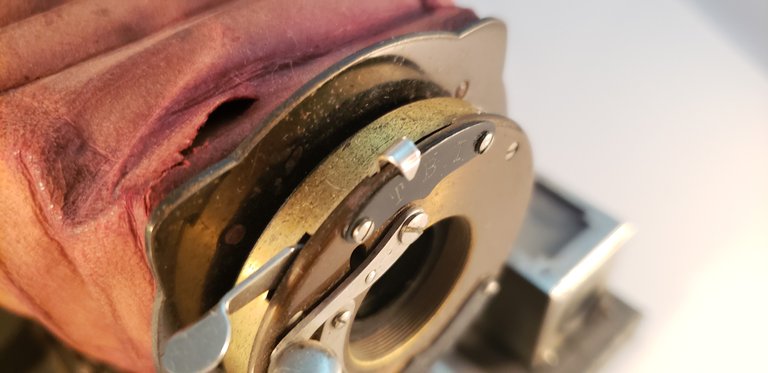
The shutter release itself is a feat of engineering that we just don't see today. It's over 100 years old, still superb, and it still works!
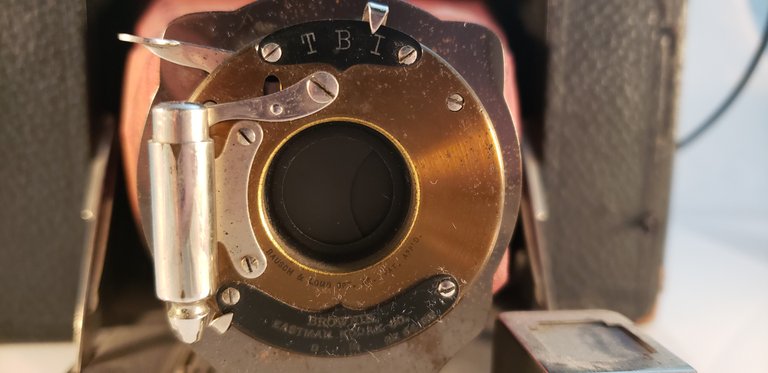
This shutter release, as old as it is, performs three distinct functions: the handle on the top, where the index finger would be, is the shutter release. The top of the this little piece of engineering, where the "T", "B", and "I" are, control the shutter speed.
"T" sets the shutter to stay open until the shutter release is depressed a second time.
"B" set the shutter to stay open as long as the shutter is depressed.
"I" sets the shutter to snap open and closed immediately.
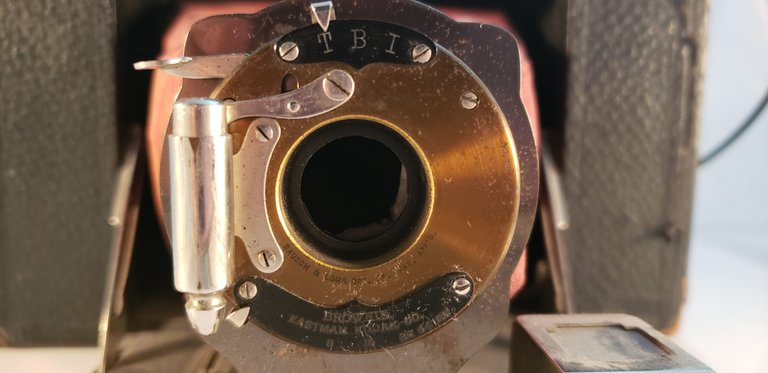
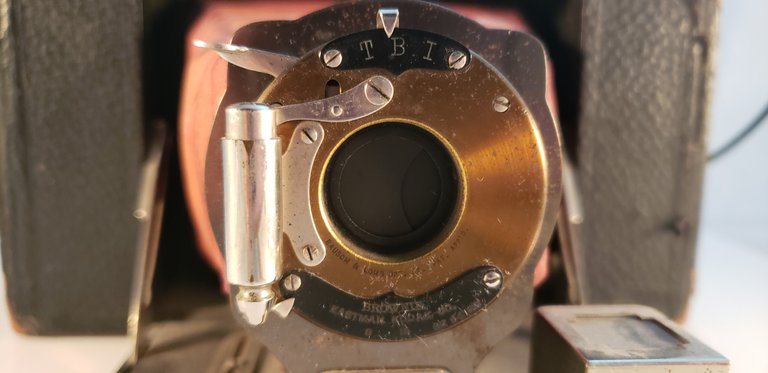
In addition to the shutter release and speed, this amazing contraption also controls the aperture, which is performed with the bottom part of the dial.
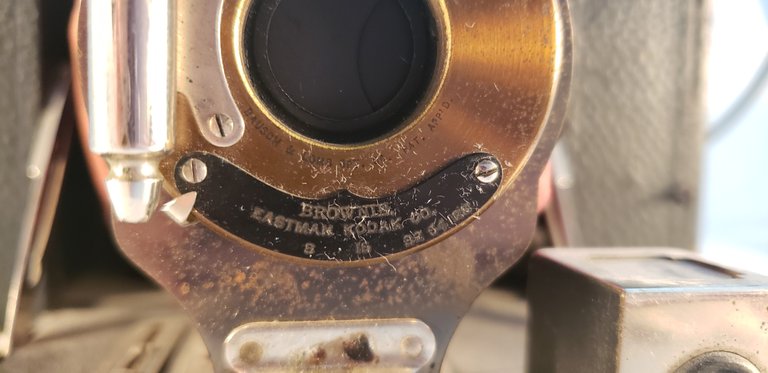
It controls from a large aperture...
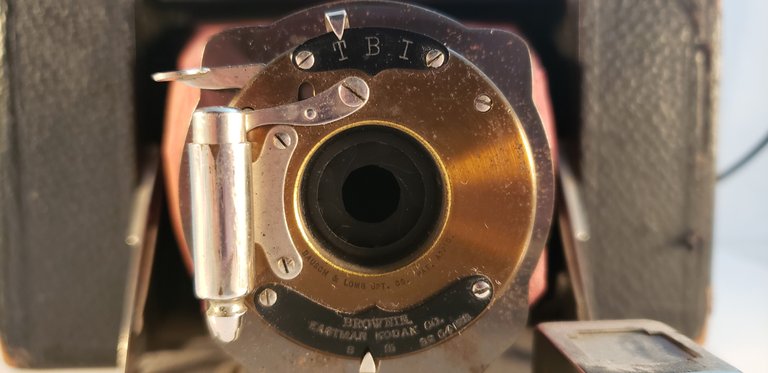
... to a small ...
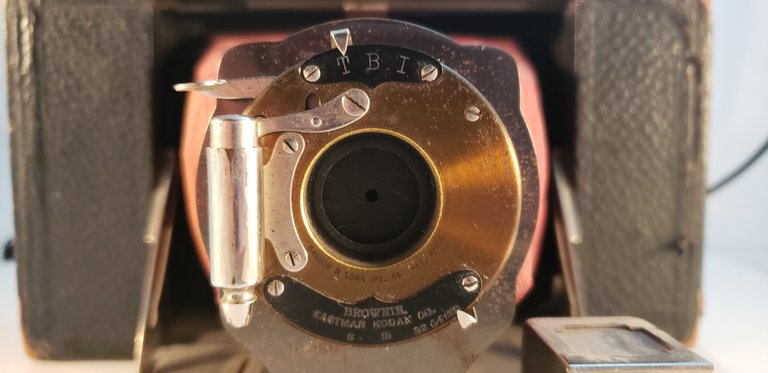
There's even a feature for focal distance! That all depends on how near the focal point is to the film:
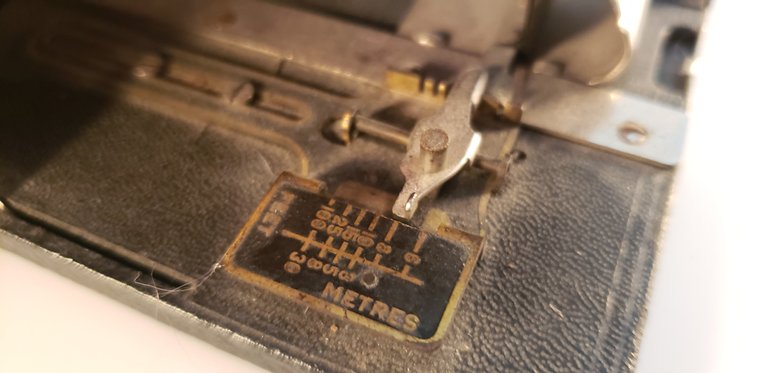
Not bad at all for a contraption over 100 years old, and a camera that doesn't even use a glass lens!
(c) All images and photographs, unless otherwise specified, are created and owned by me.
(c) Victor Wiebe



 |
|
Such a beautiful piece of equipment! The wear tells a magnificent story of it's journies.
Thank you! I love it. It's amazing to think that it was constructed with such resiliency over 100 years ago. I'm glad I was able to find it and save it.
It's been said many times, but it's true. They don't make things like they used to. Durability allows for character, the scratched and worn areas tell the complete story of those moments captured in still.
You have been curated by @freedomtowrite on behalf of Inner Blocks: a community encouraging first hand content, with each individual living their best life, and being responsible for their own well being. #innerblocks Check it out at @innerblocks for the latest information and community updates, or to show your support via delegation.
Hi, thanks for the post! I'm old enough to remember the Brownie camera, but I never owned one. I'm a little jealous. ; -) I did have a Polaroid Instamatic that was almost the size of a modern-day laptop computer, though!
I included a link to your post in my daily Science and technology digest, and you'll get a 10% share of that post's rewards.
That's awesome, thank you very much! Going to look at it now.
Wow! What a magnificient work of art!!! 😉😁
The engineering behind how it works is very commendable, knowing that they still lack some technology back then.
Thank you for sharing. 😊
Oh, there's no lens in that thing? I thought all cameras had lenses! lol. That's pretty amazing.
Nope, no lens! It works like a pinhole camera - https://en.wikipedia.org/wiki/Pinhole_camera
Pinhole camera
A pinhole camera is a simple camera without a lens but with a tiny aperture (the so-called pinhole) – effectively a light-proof box with a small hole in one side. Light from a scene passes through the aperture and projects an inverted image on the opposite side of the box, which is known as the camera obscura effect.